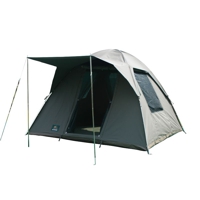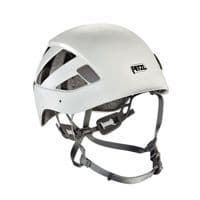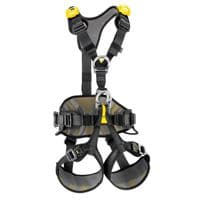Blog
Rooftop Tents vs. Ground Tents: Which Camp Are You In?
In the great outdoors, where the spirit of adventure meets the call of the wild, choosing the right tent can transform your camping experience. The debate between rooftop tents and ground tents is more than just a matter of preference; it’s about aligning your camping style with your needs, desires, and the nature of your adventures. Rooftop tents offer an elevated retreat, promising convenience and an unmatched view, while ground tents keep you connected to the earth, offering flexibility and a classic camping feel. This discussion isn’t just about where you’ll lay your head at night—it’s about how you want to experience the world around you.
The Rise of the Rooftop Tent
The rooftop tent has emerged as a game-changer for adventurers seeking convenience without sacrificing the essence of the great outdoors. Mounted securely on the roof of a vehicle, this type of tent offers a unique vantage point, elevating campers above the ground and closer to the stars. Not only does it provide a distinctive camping experience, but it also addresses common ground tent challenges such as uneven terrain, water runoff, and critter invasions. With the ease of setup that comes with a vehicle tent, campers can enjoy more time exploring and less time fumbling with stakes and ropes. The rooftop tent embodies a blend of mobility and comfort, making it an appealing option for those who wish to merge their love for travel with the allure of outdoor sleeping.
Benefits of Rooftop Tents
- Quick and Easy Setup: Elevated from the ground, making setup and takedown simpler and quicker.
- Comfort and Safety: Offers a flat sleeping surface with a built-in mattress; elevated position keeps you away from ground moisture and critters.
- Versatile Locations: Utilizes your vehicle’s mobility to camp anywhere your vehicle can go, from established campsites to off-road locations.
- Enhanced Views: Provides an elevated vantage point for better views of your surroundings.
- Space Efficiency: Frees up vehicle space and campsite area, as the tent is on the vehicle roof.
The Traditional Charm of Ground Camping Tents
Ground camping tents, encompassing a wide array of styles such as hiking tents, family tents, and the classic canvas tent, continue to be the heart of camping traditions. These camp tents offer versatility that caters to every type of outdoor enthusiast, from the solo hiker seeking a lightweight shelter to families gathering in spacious multi-room tents. The connection to the earth, the flexibility to camp in remote locations, and the variety of options available make ground tents a favored choice. They embody the quintessential camping experience, bringing campers closer to nature and offering a more immersive outdoor adventure. Whether it’s a simple canvas tent pitched in a serene forest or a high-tech hiking tent on a rugged mountain trail, ground tents provide a customizable camping experience that can adapt to any environment or preference.
Making the Right Choice for Your Adventure
Deciding between a rooftop tent and a ground tent comes down to assessing your camping preferences, travel habits, and what you value most in your outdoor experiences. Consider the ease of setup and the unique perspective a rooftop tent offers, against the versatility and traditional appeal of ground camping tents. Evaluate how each option aligns with your adventure style, whether it’s spontaneous road trips, extended wilderness stays, or family camping adventures. Reflect on factors such as travel frequency, vehicle compatibility, and the nature of your typical camping locations. Ultimately, the best choice enhances your connection with the outdoors and suits your adventure spirit, whether it’s from the elevated perch of a rooftop tent or the grounded embrace of a camp tent.

Enhancing Your Camping Experience with Accessories
Choosing the right tent is just the beginning; accessorizing your camping setup can greatly enhance your outdoor adventure. For rooftop tent enthusiasts, consider add-ons like awnings for extended shelter or a sturdy ladder for easy access. Ground tent campers might explore high-quality sleeping bags, ground mats for extra comfort, or a durable tarp to protect against the elements. Both camping styles can benefit from portable cooking gear, solar-powered lights, and compact furniture to create a cozy, functional campsite. Tailoring your gear to match your camping preferences ensures a comfortable, enjoyable experience in the great outdoors.
FAQs for Rooftop Tents
We have rounded up the top questions regarding rooftop tents:
- What type of vehicle works best for a rooftop tent?
Most rooftop tents are compatible with a wide range of vehicles, including SUVs, trucks, and even some sedans, as long as the vehicle is equipped with a sturdy roof rack system capable of supporting the weight of the tent and its occupants. - How do I install a rooftop tent?
Installation generally requires a roof rack system. The tent mounts onto the rack with brackets and bolts. It’s crucial to follow the manufacturer’s instructions or consult a professional for a safe installation. - Can a rooftop tent be used in all seasons?
Many rooftop tents are designed for three-season use (spring, summer, fall), with some models offering four-season protection against harsher weather conditions. - How does the weight of a rooftop tent affect vehicle performance?
The added weight on top can impact fuel efficiency and vehicle handling, especially at higher speeds or on windy days. It’s important to be mindful of these changes while driving. - Is it hard to store a rooftop tent when not in use?
Storage requires space equivalent to the tent’s closed dimensions. Garages, sheds, or storage areas with sufficient height and space are ideal to accommodate the tent off-season. - Do you leave your rooftop tent on all the time?
This depends on personal preference and frequency of use. Some may leave it on during the camping season for convenience, while others prefer to remove it to reduce fuel consumption and wear on the vehicle when not in use. - What supports a rooftop tent?
A rooftop tent is supported by a vehicle’s roof rack system. It’s crucial that the roof rack is sturdy and properly installed to safely bear the weight of the tent and its occupants. - Can you use a rooftop tent anywhere?
You can use a rooftop tent in any location where vehicles are allowed and it’s safe to park and camp. However, always check local regulations and permissions, especially in protected or private areas.
Conclusion – Embracing the Great Outdoors
Whether perched atop your vehicle in a rooftop tent or nestled on the forest floor in a ground tent, the essence of camping is about connecting with nature and creating unforgettable memories. Each tent style offers its own unique advantages, catering to different camping preferences and adventures. By considering factors such as ease of setup, comfort, mobility, and cost, campers can make informed decisions that enhance their outdoor experiences. Ultimately, the choice between a rooftop tent and a ground tent is deeply personal, reflecting one’s camping style and desire for adventure. Embrace the journey, and let your camping gear open the doors to exploring the natural world.










